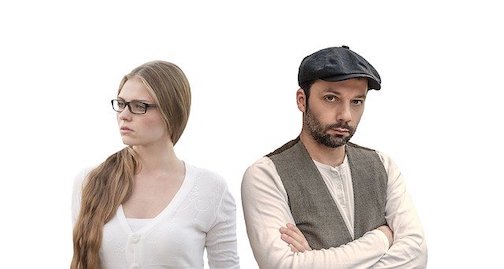What to do if Your Spouse Won't Go to Counseling
By Dr. Margaret PaulDecember 31, 2006
If your partner is not interested in going to counseling with you, discover how going into counseling yourself can heal your relationship.
 "What should I do if my spouse won't go to counseling?"
"What should I do if my spouse won't go to counseling?"
I often hear this from my clients. What are they really saying with this question?
Generally, they are saying something like:
"My unhappiness is coming from my spouse's behavior," or "The problems in our marriage are my spouses' fault," or "My spouse needs to change for me to be okay."
As long as you believe any of these statements, then you will be focused on your spouse's issues rather than on your own issues. In fact, focusing on your spouse's behavior rather than on your own is a way of avoiding responsibility for your own feelings and needs.
So, if you are having marital problems or you are feeling unhappy in the marriage and your spouse won't go to counseling, then you go!
In counseling, you need to focus on your own thoughts and actions that are causing your unhappy feelings, rather on what your spouse is doing.
In your counseling, you need to be exploring the following questions...
- How are you treating yourself that is causing you to feel unhappy?
- How are you responding to your spouse's behavior that is making you unhappy?
- Are you being reactive to your spouse's unloving behavior with your own unloving behavior, and then blaming your spouse for your reactions?
- Do you have expectations of how your spouse should be if he or she really loves you, and then you feel disappointed because your expectations are not met? Do you need to reevaluate your expectations of your spouse, which may be unrealistic?
- Are you being realistic about who your spouse is? Are you expecting your spouse to be someone he or she is not or doesn't want to be?
- Are you making your wellbeing dependent upon your partner?
- Are you taking responsibility for yourself, or are you abandoning yourself in some way?
These are just some of the questions you might want to explore in your therapy.
One partner making a major change in a relationship can change the entire relationship.
If you learn to take responsibility for your own feelings and needs, and make the changes you need to make yourself happy, then you will see whether or not you have a viable relationship. You might be surprised to find that, when you are happy within yourself and no longer have your eyes on your partner, he or she also changes. If, in response to your happiness, your spouse gets more angry or distant, you might need to consider that he or she does not have your highest good at heart. At this point, you would either need to accept things as they are, or leave the relationship.
Relationships are a system, with both partners participating in the system. When one partner changes the system, the whole system changes. For example, if you are a caretaker and your partner is a taker, and you stop caretaking and start to take loving care of yourself, one of two things will happen. Either your partner will be impressed with seeing you be happy, will gain more respect for you and start to take better care of himself or herself, or he or she will be angry and feel abandoned. Even if your spouse initially gets angry and feels abandoned, this does not mean that at some later time he or she won't shift and become more self-responsible. With the clients that I work with, most of the time when one partner really does take full responsibility for himself or herself, the other partner eventually stops being angry and starts to learn to take care of themselves.
When one partner in a relationship practices Inner Bonding and learns to take full responsibility for his or her own feelings and needs, you move beyond neediness and blame, and are able to share your love with your partner. This can bring about profound change in your relationship!
Heal your relationship with Dr. Margaret’s 30-Day online relationship course: Wildly, Deeply, Joyously in Love.
 Send this article to a friend
Send this article to a friend  Print this article
Print this article  Bookmarked 2 time(s)
Bookmarked 2 time(s)
| Related Articles |
|---|
| Too Easy To Leave |
| Should I End This Relationship? |
| Of Worm and Butterflies |
| Can This Relationship Be Helped? |
Comments
| Author | Comment | Date |
|---|---|---|
| Join the Inner Bonding Community to add your comment to articles and see the comments of others... | ||

Daily Inspiration
Every relationship in our lives offers us a gift of growth. Think about your most difficult relationships - family, friends, co-workers. Today, pick one to focus on. How is this person a mirror for you? How do you not take care of yourself around this person? What do you want from this person that you are not giving to yourself?
By Dr. Margaret Paul

 Share with Del.icio.us
Share with Del.icio.us Share with Digg
Share with Digg







